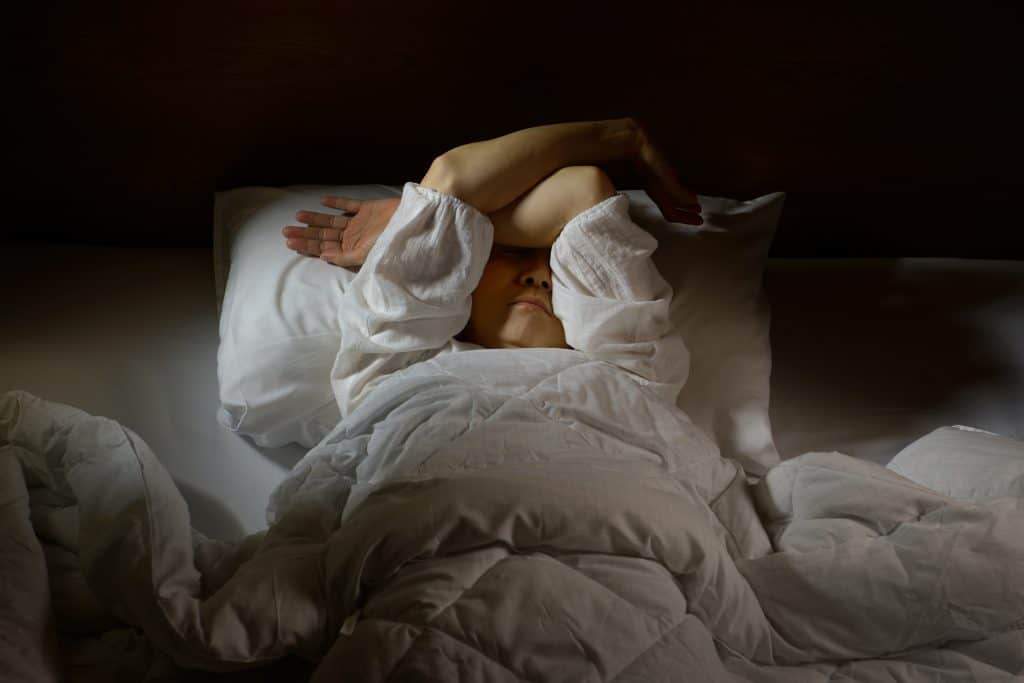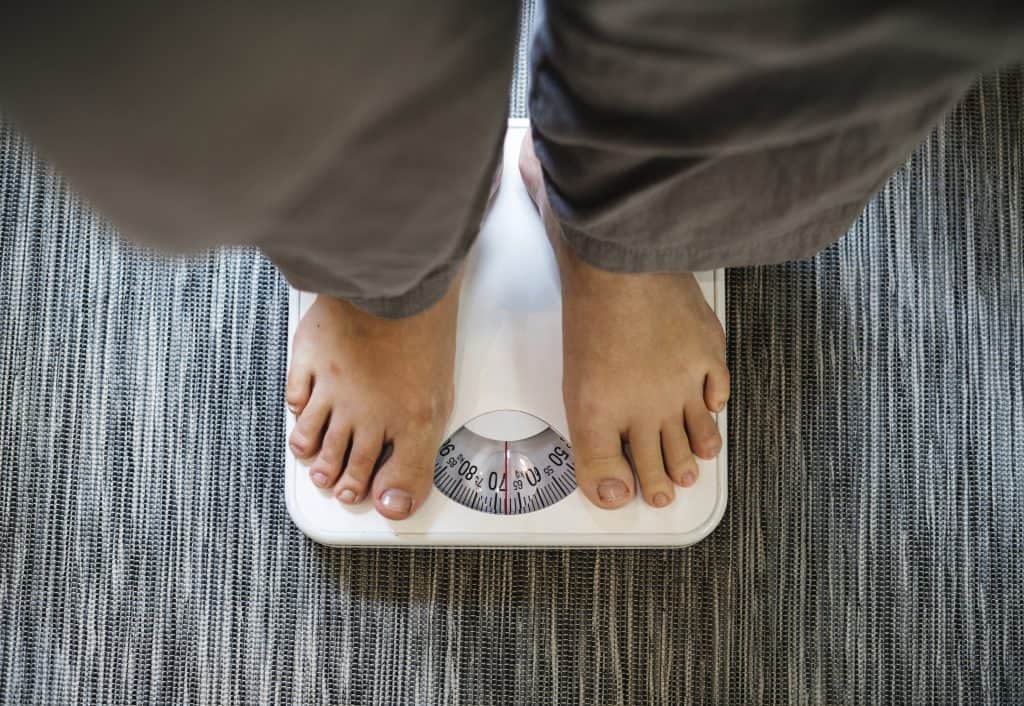6 Tips for Your C&P Exam for Sleep Apnea, Secondary to PTSD
Need a C&P exam for sleep apnea secondary to PTSD? In order to help you with your secondary claim, we have put together this Insiders Guide! Here at VA Claims Insider, we have found that one of the most common secondary conditions to PTSD is Sleep Apnea.
Remember, your C&P (“compensation and pension”) exam is, potentially, the most critical day in the entire claims process! You will want to knock it out of the park, making the rest of the process much easier.
This is ESPECIALLY true in regards to sleep apnea, which the VA often can be a little strict in granting claims for.
Which means that it’s all the more important to nail your C&P exam! So without further ado, let’s get started on your definitive guide to a Sleep Apnea C&P exam!
The Link Between Sleep Apnea and PTSD
In 2015 a study of 195 veterans from Iraq and Afghanistan with PTSD was conducted to determine if they had an increased probability of Obstructive Sleep Apnea (OSA). The study found that 69.2% of them had a high risk of OSA. The higher the severity of their PTSD symptoms was directly connected to having a higher risk of OSA.
Before this study, experts already knew that sleep could be affected by PTSD, as many veterans with PTSD experience nightmares and trouble falling asleep. Now sleep apnea is considered linked to PTSD as well.

Many factors that aggravate PTSD have been shown to aggravate sleep apnea as well, such as sleep deprivation, chronic stress, and hyperarousal.
The VA will reward sleep apnea secondary service-connection to PTSD now, but it is not a sure thing. Since there isn’t much evidence available outside of this study, it is still very important to be as prepared as possible when submitting your claim, not taking anything for granted.
Proving Service Connection for Sleep Apnea on a Secondary Basis to PTSD
The most common primary condition linked to sleep apnea as a secondary condition is PTSD.
If you are looking to prove a service-connection on a secondary basis you will have to prove causation. This requires that the secondary disability be “proximately caused by” or “proximately aggravated by” another service-connected disability.
Specifically, in this case, we are talking about a secondary connection to PTSD. Which, if you have not yet been rated for PTSD you should check out this article, 5 Tips to Prepare for Your C&P Exam for PTSD!

According to the VA law, there are three evidentiary elements that must be satisfied for sleep apnea conditions to prove secondary service connection:
- A medical diagnosis recorded in medical records of sleep apnea confirmed by a sleep study
- Evidence of PTSD as a service-connected primary disability
- The medical nexus establishing the connection between the sleep apnea and PTSD
Knowing this, you can now prepare for your C&P exam!
Tip #1 for Preparing for your C&P Exam for Sleep Apnea as a Secondary Condition to PTSD: Know Your Medical Records in Detail
It is essential to know your medical records!
Before going into your C&P exam, make sure to revisit your medical records, going through them in detail. The knowledge of your own history and detailed medical condition is one of the greatest tools you can have at your disposal during the VA disability claim process.
While going through your medical records, you will want to specifically look for a number of important facts.

You will want to make sure that you have a medical diagnosis of your sleep apnea already in your records.
Look for subjective symptoms of your disability in your service treatment records.
Identify where the symptoms of sleep apnea began after developing PTSD.
Look for facts in your record that could establish a logical link between sleep apnea and PTSD.
Tip #2: Know What the VA is Looking For
To start, the biggest two factors the VA examiner will immediately look for is whether or not you have a sleep apnea diagnosis, and if a sleep study was conducted to reach the diagnosis.
It doesn’t matter if you already use a CPAP machine or not, the VA requires a sleep study to be done in order to ever grant a claim for sleep apnea. Make sure you have this in your records before claiming sleep apnea as a secondary condition to PTSD!

Next, they will look over your history with PTSD to see how severe your symptoms are.
Finally, the examiner will be looking for proof that your sleep apnea is connected to your PTSD. Your best chance to prove this is to get an independent medical opinion (IMO). With an IMO, a doctor can explain why they believe your sleep apnea was at least as likely as not caused by or aggravated by your PTSD. This information can give the VA what they need to grant your sleep apnea a secondary service-connection.
Also, during the exam you may be asked questions like:
“Do you stop breathing in your sleep?”
“Do you wake up gasping for air or choking?”
“Do you feel tired or have daytime sleepiness?”
“Do you snore?”
Have answers ready with as many details as possible.
Tip #3 to your C&P Exam for Sleep Apnea: Think Outside the Box
Remember, a showing of causation requires only that the secondary disability be proximately due to, or the result of a previous condition. This means that the condition itself does NOT have to be shown to be the main cause! It simply needs to be connected, which can be done through the side effects of your PTSD condition.
In other words, it is possible to connect your sleep apnea to medications you may be taking for PTSD or other conditions you may have suffered as a result of PTSD (such as weight gain).

By becoming aware of these other pathways to score a nexus between sleep apnea and PTSD, you will have even more knowledge to bring into your C&P exam!
And if you’d like more information on how to think outside the box, check out this article HERE.
Tip #4 in your Sleep Apnea and PTSD C&P exam: Don’t Have Your Best Day
This doesn’t mean that you should fake having a bad day!
It means that you should have a detailed explanation ready about what your hardest days are like.

The examiner needs to know how hard life can be for you when sleep apnea is affecting you the most, on top of what you’re dealing with in your PTSD.
Remember, it’s not only important that you are able to prove the connection your sleep apnea has to your PTSD, but it’s also important to be properly rated for it! Discussing what you experience when your symptoms are at their worst will help the examiner get a more accurate record, which will help to get you the benefits you deserve.
Tip #5 for your Compensation and Pension exam for Sleep Apnea : Prepare to Talk in Detail About Your Life
You are going to want to give the C&P examiner a detailed description of your life before, during, and after service.
Be ready to explain how you noticed the development of your sleep apnea after suffering from PTSD.
How was your life different before and after being diagnosed with PTSD?
What was it like from the time you got PTSD to when you developed sleep apnea?
Stories can be powerful ways to detail connections. Telling your story to the examiner is a great way to help them understand why you are seeking a rating for a secondary condition.

Final Tip: Don’t be Afraid!
Your C&P exam for Sleep Apnea is a very important step on your way to getting the rating you deserve.
Being well prepared is the FIRST step in getting the correct rating from your Sleep Apnea claim.
Remember, a C&P exam is just like a doctor’s appointment. The only difference is that you will want to be even more prepared for this one!
If worst comes to worst, then there are steps to take for a BAD C&P exam!
Take some of these tips for a C&P exam for Sleep Apnea and try them out in your next compensation and pension exam and let us know how it goes! If you feel like you’d still like some help, we have a team of VA Insiders who would love to be there for you! Click HERE to get started!
